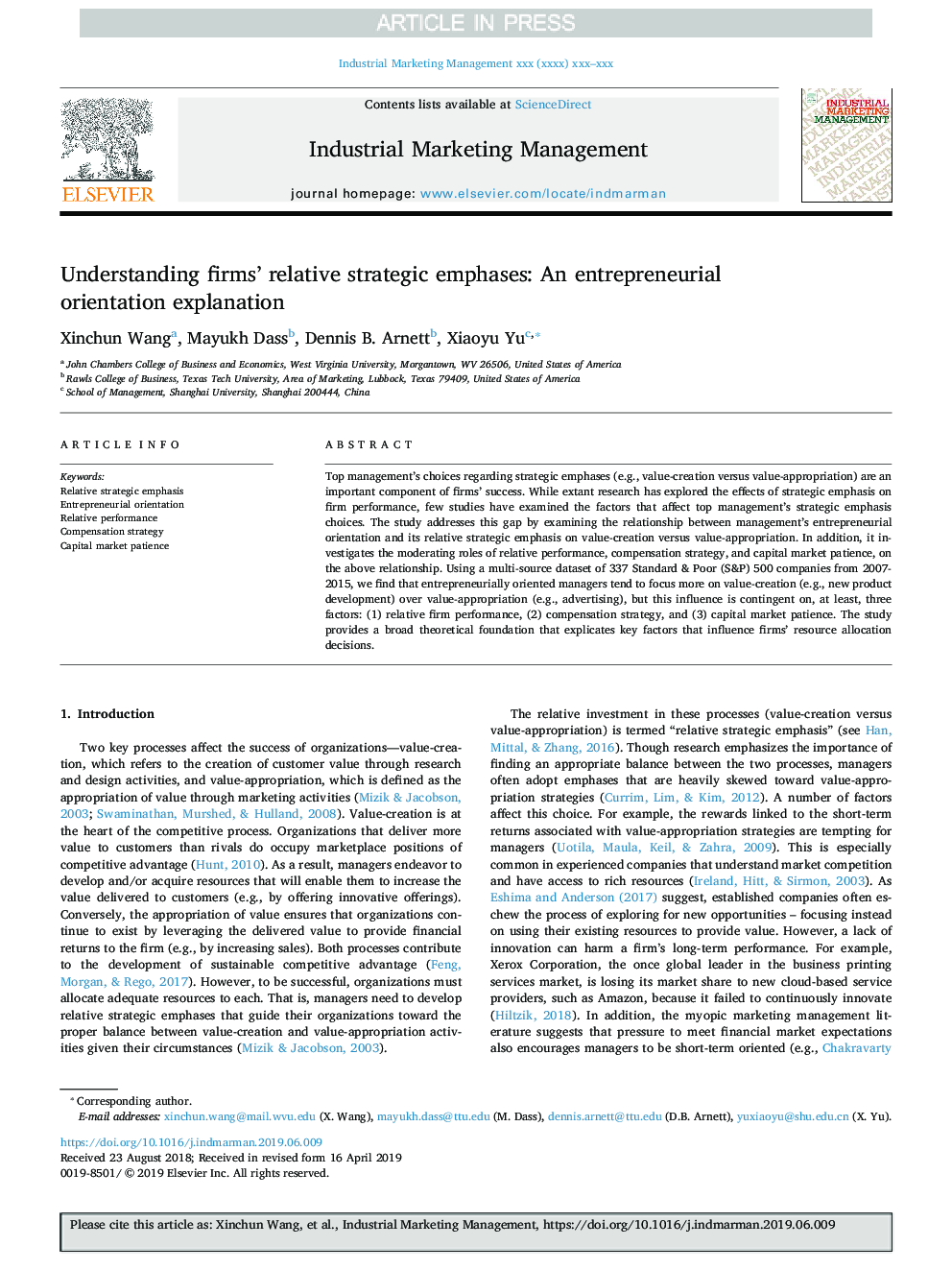| Article ID | Journal | Published Year | Pages | File Type |
|---|---|---|---|---|
| 13464260 | Industrial Marketing Management | 2020 | 14 Pages |
Abstract
Top management's choices regarding strategic emphases (e.g., value-creation versus value-appropriation) are an important component of firms' success. While extant research has explored the effects of strategic emphasis on firm performance, few studies have examined the factors that affect top management's strategic emphasis choices. The study addresses this gap by examining the relationship between management's entrepreneurial orientation and its relative strategic emphasis on value-creation versus value-appropriation. In addition, it investigates the moderating roles of relative performance, compensation strategy, and capital market patience, on the above relationship. Using a multi-source dataset of 337 Standard & Poor (S&P) 500 companies from 2007-2015, we find that entrepreneurially oriented managers tend to focus more on value-creation (e.g., new product development) over value-appropriation (e.g., advertising), but this influence is contingent on, at least, three factors: (1) relative firm performance, (2) compensation strategy, and (3) capital market patience. The study provides a broad theoretical foundation that explicates key factors that influence firms' resource allocation decisions.
Related Topics
Social Sciences and Humanities
Business, Management and Accounting
Marketing
Authors
Xinchun Wang, Mayukh Dass, Dennis B. Arnett, Xiaoyu Yu,
